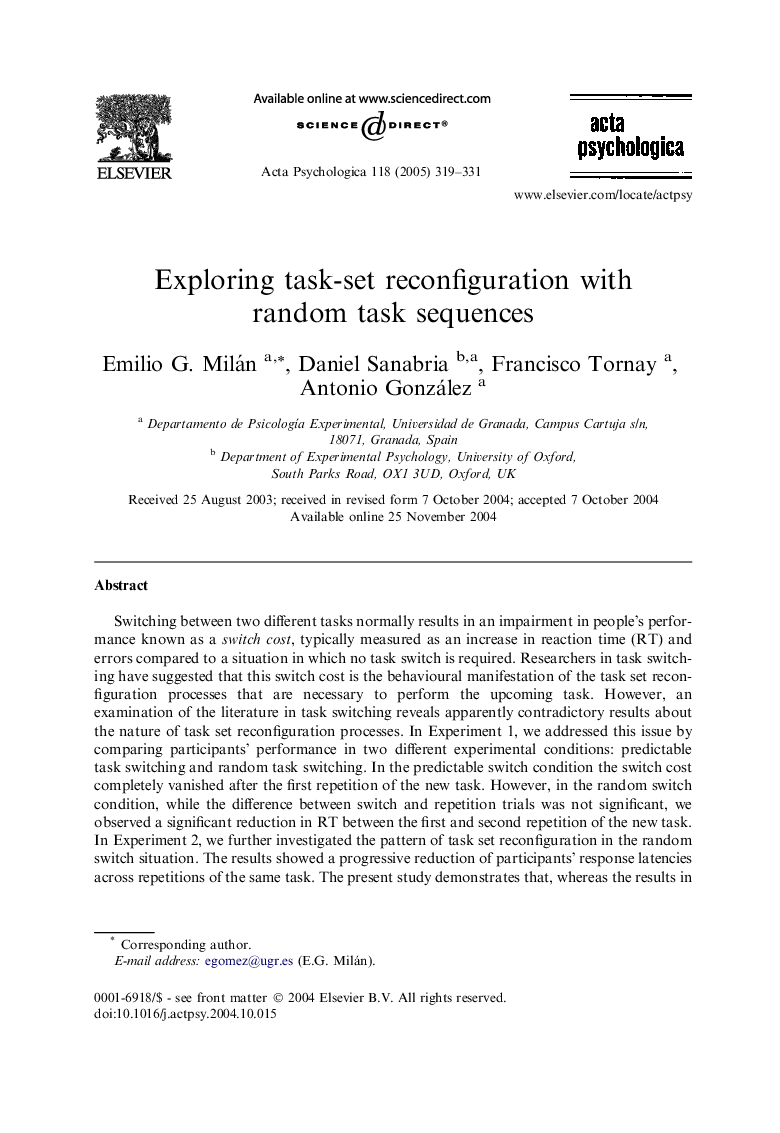| Article ID | Journal | Published Year | Pages | File Type |
|---|---|---|---|---|
| 10453918 | Acta Psychologica | 2005 | 13 Pages |
Abstract
Switching between two different tasks normally results in an impairment in people's performance known as a switch cost, typically measured as an increase in reaction time (RT) and errors compared to a situation in which no task switch is required. Researchers in task switching have suggested that this switch cost is the behavioural manifestation of the task set reconfiguration processes that are necessary to perform the upcoming task. However, an examination of the literature in task switching reveals apparently contradictory results about the nature of task set reconfiguration processes. In Experiment 1, we addressed this issue by comparing participants' performance in two different experimental conditions: predictable task switching and random task switching. In the predictable switch condition the switch cost completely vanished after the first repetition of the new task. However, in the random switch condition, while the difference between switch and repetition trials was not significant, we observed a significant reduction in RT between the first and second repetition of the new task. In Experiment 2, we further investigated the pattern of task set reconfiguration in the random switch situation. The results showed a progressive reduction of participants' response latencies across repetitions of the same task. The present study demonstrates that, whereas the results in predictable switching conditions are compatible with an exogenous-reconfiguration hypothesis, random task switching produces a more gradual, decay-like switch cost reduction with task repetition.
Related Topics
Life Sciences
Neuroscience
Cognitive Neuroscience
Authors
Emilio G. Milán, Daniel Sanabria, Francisco Tornay, Antonio González,
